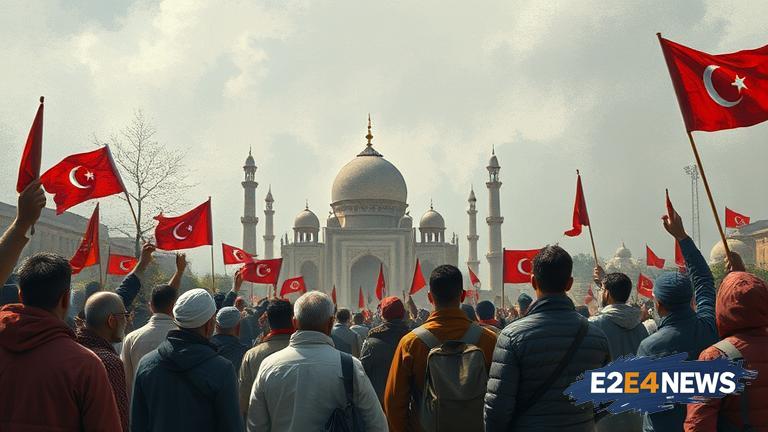The Labour Party’s definition of Islamophobia has been a topic of discussion in recent days, with many arguing that it is too broad and could have unintended consequences. The definition, which was adopted by the party in 2018, states that Islamophobia is ‘rooted in racism and is a form of racism that targets expressions of Muslimness or perceived Muslimness’. While the intention behind the definition is to protect Muslims from discrimination and hate speech, some have argued that it is too vague and could be used to silence critics of Islam or Muslim-majority countries. Others have pointed out that the definition could be used to restrict free speech and stifle debate on important issues. The controversy surrounding the definition has been fueled by concerns that it could be used to label anyone who criticizes Islam or Muslim-majority countries as an Islamophobe. This has led to fears that the definition could be used to restrict academic freedom and stifle discussion on topics such as terrorism, extremism, and human rights. Some have also argued that the definition is too broad and could be used to label legitimate criticism of Islam as hate speech. The Labour Party has defended its definition, arguing that it is necessary to protect Muslims from discrimination and hate speech. However, others have argued that the definition is not necessary and could have unintended consequences. The controversy surrounding the definition has sparked a wider debate about the balance between protecting Muslims from discrimination and preserving free speech. Many have argued that the definition is a form of censorship and could be used to restrict debate on important issues. Others have pointed out that the definition could be used to label anyone who criticizes Islam or Muslim-majority countries as a racist. The debate has also sparked concerns about the impact of the definition on academic freedom and the ability to discuss important topics such as terrorism and extremism. Some have argued that the definition could be used to restrict the ability of academics and researchers to study and discuss these topics. Others have pointed out that the definition could be used to label legitimate criticism of Islam as hate speech and restrict the ability of people to express their opinions. The controversy surrounding the definition has also sparked concerns about the impact on social cohesion and community relations. Many have argued that the definition could be used to create divisions and stifle debate on important issues. Others have pointed out that the definition could be used to label anyone who criticizes Islam or Muslim-majority countries as an outsider and restrict their ability to participate in public debate. The Labour Party’s definition of Islamophobia has been widely criticized, with many arguing that it is too broad and could have unintended consequences. The definition has sparked a wider debate about the balance between protecting Muslims from discrimination and preserving free speech. Many have argued that the definition is a form of censorship and could be used to restrict debate on important issues. The controversy surrounding the definition has also sparked concerns about the impact on academic freedom and social cohesion. The Labour Party has defended its definition, arguing that it is necessary to protect Muslims from discrimination and hate speech. However, others have argued that the definition is not necessary and could have unintended consequences. The debate is ongoing, with many calling for a more nuanced and balanced approach to defining and addressing Islamophobia. The UK government has also been criticized for its handling of the issue, with many arguing that it has failed to provide clear guidance on the definition and its implications. The controversy surrounding the definition has sparked a wider debate about the role of government in regulating speech and protecting minority communities. Many have argued that the government should take a more nuanced and balanced approach to addressing Islamophobia, one that protects Muslims from discrimination while also preserving free speech and academic freedom. The debate is likely to continue, with many calling for a more thoughtful and considered approach to defining and addressing Islamophobia.
